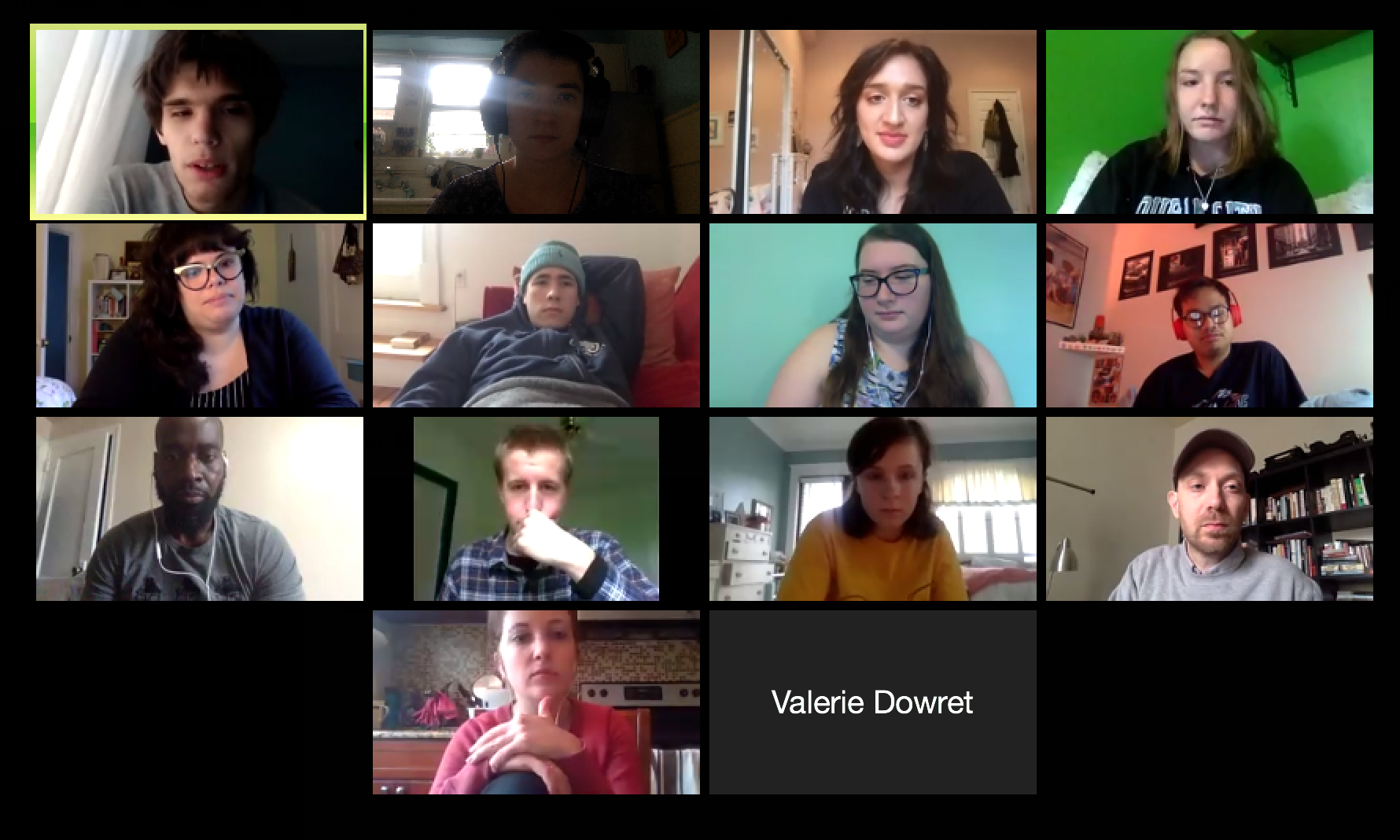With the spring semester ending and the summer months stretching out before student’s eyes, the uncertainty around how long shelter-in-place guidelines might last are taking a toll on students already balancing the demands of school, reporting as a student journalist, and simple survival. While classes and professional development workshops do not often provide space for more personal discussions, students and student reporters are also without the public forums of campus newsrooms and Annenberg Hall’s Atrium to engage in candid dialogue. To fill this gap, Philadelphia Neighborhoods Editor Chris Malo and Resolve Philly Community Engagement Editor Derrick Cain decided to host their own series of “Sound Off” events for Klein students, modeled after Resolve Philly’s signature events that break down the traditional town hall to create an open-minded, informal conversation amongst peers. Launched on May 6, the weekly event brings student reporters together for an open and honest discussion of their triumphs and trials as they cope with current conditions.
It all started when Valerie Dowret, a journalism student and intern for Resolve Philly, would discuss her concerns about reporting remotely while juggling school and pandemic concerns with Cain. Before they would begin their regular Zoom-based Sound Off workshops with community groups and journalists, Cain and Dowret would talk about how these issues affected her specifically, in very different ways than those brought up during the community-based sessions. When Cain realized that Dowret and her student peers were experiencing a unique combination of issues unlike those of the wider community, he and Malo began drawing up plans for a series specifically geared toward student journalists.
“One of the many things that coronavirus has shown or forced up on people is, like, I think everybody experiences this in different ways,” says Malo. “And I think in our experience in talking with students is that they’re experiencing this as students, they’re experiencing this as journalists, and they’re experiencing this as human beings. And so the intersectionality of those things is different than, for example, a mother who’s also an ER nurse.”
Like any of the signature Sound Off events, Malo and Cain created a relaxed culture from the very beginning. To avoid the rigidity of a classroom or lecture setting while still making students feel as comfortable as possible, they agreed to remain open-minded with their expectations and let students guide the discussion. To set the conversation in motion, both facilitators made it clear that this was to be an open discussion of how participants were affected by the pandemic professionally, academically and personally.
“Whenever I have a Sound Off, there’s no expectations; it’s just kinda spitballing. We come up with a concept, throw it out there, see what happens, and go from there,” says Cain. “I want people to walk away feeling they were one, heard; and two, they felt comfortable and want to continue to share, whether they’re getting information or giving.”
Between the weekly events, the group has created a Slack channel to stay in touch, encourage one another and pose questions and topics that might guide future sessions. While the channel can also serve as a public forum for student journalists, relying on these virtual settings to build organic conversations is often seen as a barrier—but Cain and Malo are certain that the series’ informal style is intrinsic to its success. In order to keep in casual, Malo’s approach was to deploy his usual teaching style, emphasizing his own humanity and occupation of multiple roles at once; for instance, at Klein, his roles overlap as both instructor and staff.
“I’ve also been both an editor and a reporter, so I feel like something that I have a perspective on is being able to see things from multiple viewpoints at the same time,” he says.
And while students discussed everything from recording tips to coping with the demands of quarantine, many were simply looking for an informal way to connect with their peers outside of class. Journalism student, Features Editor at The Temple News and Social Media Manager for Philadelphia Neighborhoods Madison Karas says that the pandemic has presented her with the challenge of covering her first-ever large-scale crisis—a daunting task, no doubt—and she missed being able to discuss the project with other journalism majors.
“I was interested to go because I wanted to still have a way to connect with my journalism peers, professors and area professionals like Resolve Philly to have an outlet for social connection, but then also talk about reporting right now because it is such uncertain times,” she says. “This was a space where I could just be like ahhh, I’ve been doing seven different interviews today and everybody is stressed out! And I can’t act like I’m stressed out when I’m interviewing people who are stressed out.”
Blending these journalistic concerns with a welcoming, unassuming virtual environment was the key to creating and sustaining a conversation that is not just interesting and meaningful, but personally reassuring and comforting to the student journalists keeping up with so many different demands at once.
“I think those barriers were broken because we took it to a personal level,” says Cain. “If you don’t create that environment virtually, it will be cold.”

